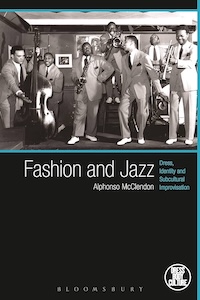
On The Bookshelf
Fashion and Jazz: Dress, Identity and Subcultural Improvisation
Born in the late 19th century, jazz gained mainstream popularity during a volatile period of racial segregation and gender inequality. It was in these adverse conditions that jazz performers discovered the power of dress as a visual tool used to defy mainstream societal constructs, shaping a new fashion and style aesthetic. Fashion and Jazz is the first study to identify the behaviours, signs and meanings that defined this newly evolving subculture.
Drawing on fashion studies and cultural theory, the book provides an in-depth analysis of the social and political entanglements of jazz and dress, with individual chapters exploring key themes such as race, class and gender. Including a wide variety of case studies, ranging from Billie Holiday and Ella Fitzgerald to Louis Armstrong and Chet Baker, it presents a critical and cultural analysis of jazz performers as modern icons of fashion and popular style.
Addressing a number of previously underexplored areas of jazz culture, such as modern dandyism and the link between drug use and glamorous dress, Fashion and Jazz, published by Bloomsbury, provides a fascinating history of fashion’s dialogue with African-American art and style. It is essential reading for students of fashion, cultural studies, African-American studies and history.
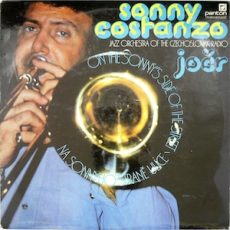
Daily Dose Of Jazz…
Sonny Costanzo was born Dominic on October 7, 1932 in Greenwich Village, New York City, New York. Academically trained, he received additional education from on-the-road experience playing trombone with big bands.
Costanzo was a member of the Clark Terry Big Band, Woody Herman And His Orchestra, Woody Herman And The Swingin’ Herd. He led the Sonny Costanzo Big Band, and the Sonny Costanza Orchestra,
He recorded five albums as a leader or co-leader with Na Sonnyho Straně Ulice, Glenn Zottola, Golden Strings of Prague and the Czech Radio Big Band. Two of them are quartet led.
Trombonist and bandleader Sonny Costanzo died on December 30, 1993 in New Haven, Connecticut.
More Posts: bandleader,history,instrumental,jazz,music,trombone
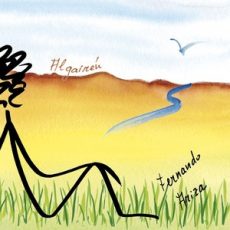
Daily Dose Of Jazz…
Fernando Álvarez Ariza was born in Santander, Columbia on October 6, 1977. He began his musical studies at the artistic culture department of Santander DICAS and continued his studies in harmony with Rito Mantilla and classical guitar with Silvio Martinez at the Universidad Industrial de Santander. He graduated with a Bachelor in music degree and took a workshop at Los Angeles International Christian University, strengthening his studies in electric guitar, jazz fundamentals, and production. He later received tutoring from guitarists Bruce Saunders and Pino Marrone.
He has done rock projects with the group Osmosis from Bucaramanga, Santander, with whom he recorded a single called Atrás de los Sueños with the collaboration of guitarist Mauricio Espinoza. His jazz projects include the staging of the work Santandereano by bassist José “Chepe” Ariza at the national festival Jazz al Parque in Bogotá.
He has shared the stage with Bruce Saunders, Eric Halvorson, Javier Colina, Héctor Martignon, Antonio Arnedo, Oscar Acevedo, Chepe Ariza, Gabriel Rondón, Sebastián Monsalve, Pacho Dávila, Ricardo Uribe, Oscar Serrano Prada, Lalo Ariza, Germán Sandoval, Sincopa Jazz Band, among others.
His recent album, Arquitectura Sonora, features Cuban saxophonist Leonardo Molina and trumpeter Jorge Méndez. He fuses electronic textures, improvisation, and elements of Colombian folk and urban culture. He has taught at the Gentil Montaña Foundation, Corporación Cristiana Universitaria, Los Angeles International Christian University, and is currently a professor at the Faculty of Arts and Humanities at the University of Pamplona, Colombia.
More Posts: bandleader,guitar,history,instrumental,jazz,music
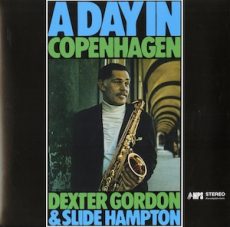
Requisites
A Day in Copenhagen ~ The Dexter Gordon-Slide Hampton Sextet | By Eddie Carter
My appreciation for Dexter Gordon began when I first heard his album Go at one of my uncle Ben’s jazz gatherings during my childhood. The moment I heard Gordon’s rich, full-bodied, and resonant tone, I became an ardent fan of his playing. This morning, I’m exploring the tenor saxophonist in a different setting, paired with trombonist Slide Hampton in a stellar sextet. A Day in Copenhagen (MPS Records MPS 15 230 ST) was originally released in Germany in 1969. Rounding out the ensemble are Dizzy Reece on trumpet, Kenny Drew on piano, Niels-Henning Ørsted Pedersen on bass, and Art Taylor on drums. My copy of this album is the 2023 Worldwide Record Store Day limited edition stereo audiophile reissue (MPS Records 0218937MSW).
The first side kicks off with Kenny’s energetic introduction to My Blues by Slide Hampton. The front line launches into the spirited melody. Dexter takes flight first in an invigorating solo, then Kenny follows with a reading as refreshing as a cool drink on a warm evening. Dizzy adds a brassy bite next, then Niels-Henning gets a moment to shine. Slide makes his point passionately in the following interpretation, and Art steers the group toward the theme’s return and close. You Don’t Know What Love Is by Gene de Paul and Don Raye unfolds with the ensemble’s relaxed medium-paced theme. Slide comes out swinging first. Dexter fuels the following reading with electric energy, then Dizzy comes in for an enthusiastic solo. Dexter offers one final comment before the theme’s reprise and exit.
Slide Hampton’s A New Thing ends the first side with a relaxed, easygoing beat. Art’s introduction sets up the ensemble’s melody. Dexter’s opening solo ventures into fresh musical territory, then Kenny picks up the baton with his own imaginative improvisation. The group then reunites for the theme’s reprise and conclusion. What’s New by Bob Haggart and Johnny Burke is reimagined in a medium-tempo groove to start the second side, offering a fresh platform for the ensemble’s melody and solos. Dexter opens with a silky-smooth performance, then Dizzy builds the second statement exquisitely. Slide takes his turn in the spotlight next. Kenny adds his own inventive touch in the following reading. Niels-Henning closes things with a brief walk before the song ends.
The Shadow of Your Smile by Johnny Mandel and Paul Francis Webster is a quartet performance that unfolds gracefully with subtle elegance. Dexter delivers the melody and opening statement with a delicate touch and gentle finesse. Kenny then speaks softly with quiet sensitivity. Dexter reprises the theme into a soft, gentle ending. A Day In Vienna is a tribute to the Austrian Radio’s Jazz Workshop by Slide Hampton. After the front line kicks things off with an energetic melody, Dexter delivers a commanding opening solo. Dizzy keeps the excitement high with a captivating performance. Slide demonstrates remarkable technical skill and agility next. Niels-Henning’s bass work glides smoothly and gracefully. Finally, Art wraps up with a joyful flourish, guiding the sextet to an enthusiastic closing chorus.
Joachim-Ernst Berendt produced A Day in Copenhagen. Willi Fruth handled the recording supervision, and Birger Swan was the engineer. The album boasts exceptional sound quality, featuring an impressively clear and balanced soundstage in both the treble and midrange, complemented by a deep and well-defined bass. This release showcases the remarkable results that can be achieved through collaborative jazz, with an outstanding lineup of musicians. The album skillfully merges energetic, blues-inspired pieces with tender, evocative ballads, each rendered with exceptional skill and genuine feeling. The extraordinary chemistry among the players is apparent throughout, as each musician’s unique approach enriches the ensemble, all while maintaining a cohesive and unified artistic direction.
If you’re a fan of Dexter Gordon, Slide Hampton, or any of the exceptional musicians in this ensemble, or if you’re searching for a superb record that blends hard-bop and post-bop for your library, I enthusiastically recommend and invite you to check out A Day in Copenhagen by The Dexter Gordon-Slide Hampton Sextet on your next record shop visit. This album beautifully captures the magic of American, Danish, and Jamaican artists coming together in Copenhagen for a memorable jazz session that is likely to become one of your favorites!
~ Go (Blue Note BLP 4112/BST 84112) – Source: Discogs.com ~ The Shadow of Your Smile, What’s New, You Don’t Know What Love Is – Source: JazzStandards.com © 2025 by Edward Thomas CarterMore Posts: choice,classic,collectible,collector,history,instrumental,jazz,music,saxophone,trombone
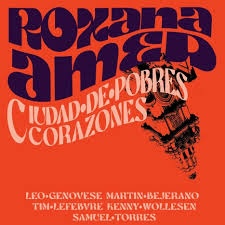
Daily Dose Of Jazz…
Roxana Amed was born October 5, 1963 in Buenos Aires, Argentina. The singer-songwriter blends South American folk traditions with art rock and modern jazz. Considered as one of the most important voices in South American music.
Once in the United States, she collaborated with musicians based in New York City as Guillermo Klein, Emilio Solla, Leo Genovese, Sofia Rei, and pianist/composer Frank Carlberg. She has performed at The Jazz Gallery, Dizzy’s Club at Lincoln Center, Jazz Standard, The Stone, Rockwood Music Hall, Smalls, and Mezzrow.
In 2017 was commissioned, with Brazilian pianist André Mehmari, to pay tribute to the legendary Astor Piazzolla at the Buenos Aires International Jazz Festival. An album of the performance is set to be released in 2021.
Amed is a post-graduate in Contemporary Literature in Spanish Language, as well as a vocal instructor and clinician. For ten years she has led a vocal workshop for hundreds of jazz vocalists at the Buenos Aires International Jazz Festival.
She worked on a special project for the CMA grant, which resulted in Becoming Human, her eleventh album. It illustrates the human journey and her own experience as an artist. Vocalist, composer, producer Roxana Amed is a full-time Voice Professor at the Frost School of Music at the University of Miami.
More Posts: bandleader,history,instrumental,jazz,music,vocal



